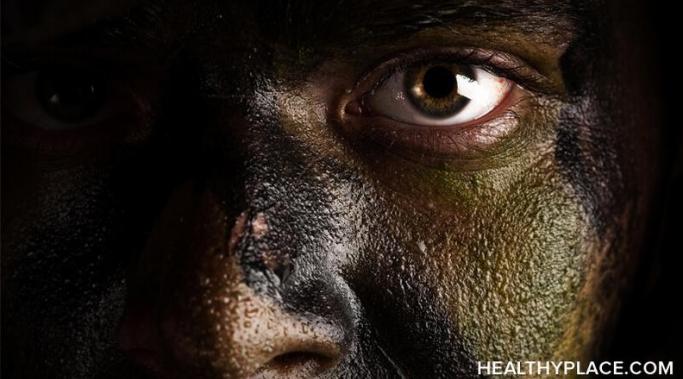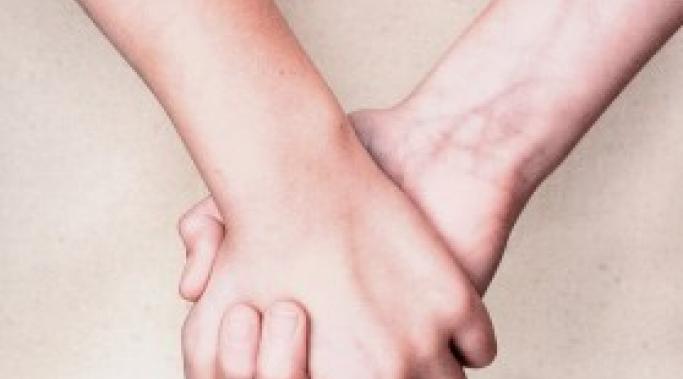Blogs
I have someone peppering me with comments and emails right now claiming that if I’m living well, then I must not really have bipolar disorder. Moreover, this person claims that bipolar II isn’t actually real and that bipolar I is the only “real manic depression.” Naturally, I am not conversing with this person in spite of his threats to disparage me in an upcoming film. I do feel it’s important to say this though: it is entirely possible to have bipolar and disorder and live a full and successful life.
Recently I was at Three Carrots vegan restaurant in Indianapolis City Market when I struck up a conversation with a prosecutor. I mentioned the city's mental health court, and she told me it no longer exists. It was phased out after the judge retired. When I expressed my concern, she said she was sympathetic. "I've got a guy right now who needs to be in mental health court. We can't let him go because he has nowhere to live, he needs treatment, and we can't keep him in jail forever . . ." She shook her head, and we both agreed it was sad that the leading provider for mental health services is the Marion County Jail.
To build your self-esteem, you need to step outside your comfort zone. Change requires effort and a different course of action to what you’re used to. It may seem easier to do nothing, however a lack of action can keep you stuck in your present situation. To create change you must be willing to challenge yourself.
Dear readers,
Today in writing this post, I’m left feeling bittersweet. For the last 18 months or so, this Surviving ED blog has proven to be a wonderful opportunity for me to write about my eating disorder recovery. Throughout this experience, I’ve met wonderful people, both via comments to my posts and also in working with my amazing co-author, Jess Hudgens, whom I respect and admire more than words can say.
Serving others is showing compassion, goodwill and kindness. Serving others is linked to positive effects on the helping individual’s wellbeing. Likewise, those who are the recipients of good deeds experience a positive effect on their wellbeing as well. Bottom line is, serving others includes benefits for ourselves, to include increased happiness and wellbeing.
A few weeks ago, I discussed how hyperarousal (or feeling “keyed up”) is a symptom area of combat posttraumatic stress disorder (PTSD). A symptom that is part of hyperarousal is an exaggerated startle response. But what is this response and what might this PTSD symptom look like?
Of all my Dissociative Living posts, only one was written for partners of people with dissociative identity disorder (DID). Maybe that's why the emails I still receive now and again from readers are almost always from partners. And the emails are always the same: something like, “I love my partner, but someone in their system broke up with me/told me to go away. Other parts love me and want me around. What should I do?” It's uncanny, really, how nearly identical each of these emails are. And here, once and for all, is my response to everyone who finds themselves desperate to know what they can do about their partner with dissociative identity disorder.
We’ve heard the saying before: We all have baggage. Some people have baggage regarding their home lives or personal relationships. There are people who have dealt with the death of a loved one or a painful disease. No matter the case, everyone has something that clings to them and hands them anxiety from time to time. Some people can handle those situations well, while others become angry or destructive towards themselves and others. Sometimes baggage can cause self-harm.
Learn how to embrace being alone and improve self-esteem. These tips and ideas will help you embrace your alone time, feel more confident, and on your way to higher self-esteem.
Blocks in posttraumatic stress disorder (PTSD) recovery are so common that they deserve their own book. From the varied origins of what gets you stuck to the way resistance sneaks up when you least expect it to the things that slow, stall and even flat out stop your PTSD recovery process can leave you feeling like a failure.










I believe she will only be able to rid herself of her demons, and hopefully her BPD as well, when she's ready to confront the abuse of her father. If she can put the blame where it belongs, she may stop projecting that victim/perpetrator cycle on the present men in her life. These demons are a metaphor for the purgatory she has created for herself. That reality has consequences in the real world, but it need not be real in the tangible sense. Exorcising her demons will require the expenditure of real physical energy and probably the destruction of aspects of her personality. If this ever happens, and it's possible but not probable, then these demons will evaporate. They are only as real as one's personality is real. In short, reality is not the question, it's what you make of the things you feel to be real.